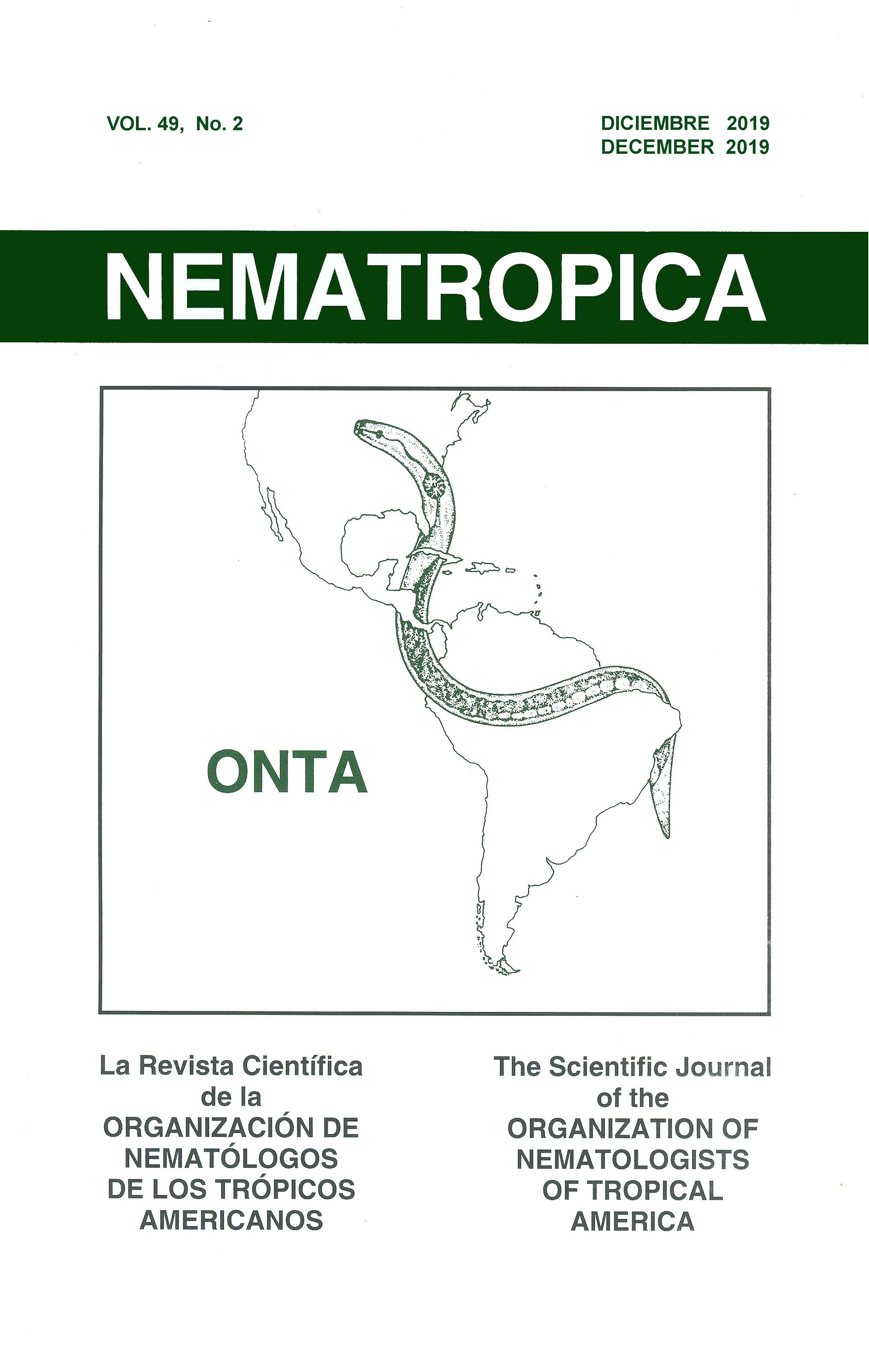MORPHOLOGICAL, BIOCHEMICAL, AND MOLECULAR DIAGNOSTICS OF MELOIDOGYNE SPP. ASSOCIATED WITH MUSA SPP. IN COLOMBIA
Abstract
Root-knot nematodes (Meloidogyne spp.) are one of the most destructive plant-parasitic nematodes of Musa spp. around the world. The objective of this study was to identify species of Meloidogyne associated with plantain (Musa AAB Simmonds) and banana (Musa acuminata AAA) crops from Colombia in different zones of Valle del Cauca, Quindío, Risaralda, and Caldas using morphological, biochemical, and molecular diagnostics. Each population of Meloidogyne was cultured on tomato (Solanum lycopersicum cv. Santa Clara). Nematodes were then extracted from cultures and species identification was conducted using perineal patterns and esterase phenotypes. Molecular identification was performed by amplifying and sequencing the D2-D3 expansion segments of the 28S nuclear ribosomal RNA gene as well as partial region of cytochrome oxidase subunit I (COI), and NADH dehydrogenase subunit 5 (Nad5) genes of mitochondrial DNA. Phylogenetic analysis were performed using maximum likelihood estimation and Bayesian inference for the three target regions. Results confirmed M. incognita, M. acrita, M. arenaria, and M. hispanica are associated with Musa spp. This is the first report of M. acrita and M. hispanica attacking Musa spp. of Colombia.

